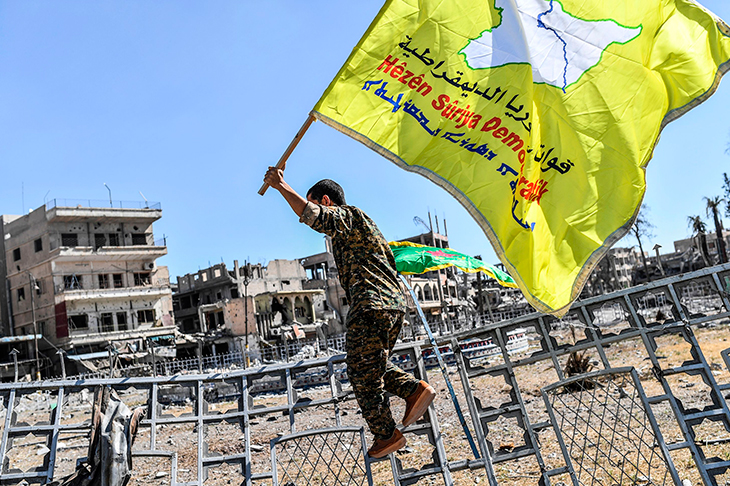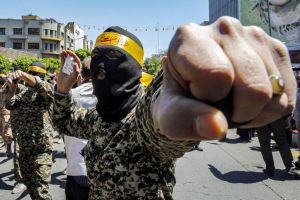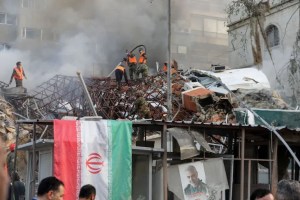Foreign fighters are returning from the battlefield — not Islamists but the Americans, Europeans and South Americans who fought to rid the world of Isis. But for all their bravery, their homecoming is a tricky one because their home countries do not want them back.
I have now interviewed more than a dozen volunteers. Many of them share similar stories of arrests and detentions. They have been stripped of their ability to travel, have their movements monitored, their bank accounts closed. One of them, an American, has since committed suicide.
One fighter, who wishes to be known as Max, tells me in an email that he has left his home country of Denmark. He had returned for a short while after enlisting for a six-month tour in the Syrian Democratic Forces (SDF) of northeastern Syria where he fought to rout Isis from its de facto capital and caliphate.
During Max’s time there, the Danish government issued a law that made his mere presence in Syria illegal. He hadn’t heard about the change until he left Rojava, the northeastern semi-autonomous Kurdish region where the SDF is based, to return home.
‘Being back in Denmark… has been mentally tiring and challenging, mainly because of my fear of the police suddenly showing up on my doorstep,’ he says. ‘In Denmark, we get treated like criminals when all we wanted was to help the Kurdish people of Syria, to defeat a terrorist organization that had been murdering innocents all around the world.’
He is not in hiding now, he tells me, but he has left Denmark. ‘It makes me sleep much better when I’m out of the country,’ he says. ‘I am much less stressed and, in general, more happy.’
Max is not alone. Similar restrictive and oppressive measures against former fighters have spread across Europe. Laws — in Britain, Spain, Italy, Denmark and France, among others — meant to deter westerners from joining Isis or other radical terrorist networks such as al-Qaeda have since dragged into their nets the volunteers who came to aid the Kurds in northeastern Syria in their desperate plight from all sides: Turkey, Isis and the Assad government in Damascus. The Syrian Democratic Forces volunteers who return safely from the defeat of Isis now find they’ve no real home any more. Their home was and remains Rojava, their tired utopia, in northeastern Syria.
From my recent visits to the front line in Baghouz, to meetings with former People’s Protection Units volunteers in Denmark and Britain, it was evident that these people — fighters, but also medics and cooks — have found a strained life. They no longer live in opposition to Isis but rather to their own governments. Counter-terrorism strategies meant to allay the fear about radical Islamists returning home have instead stripped the liberties of those who fought against those very fundamentalists.
‘When I first came back, after I spent about two weeks here… I was ready to go back [to Syria],’ said Josh Walker, 28, a British former volunteer. ‘But obviously I couldn’t because I didn’t have my passport.’
Josh volunteered with the SDF, where he fought Isis and acted as a translator for US Special Forces from June to December 2016. When he returned home to the UK, he was detained at Gatwick Airport on suspicion of preparing terrorist acts. During a raid at his Aberystwyth University bedsit, where he was reading international politics and strategic studies, officers discovered a printout of The Anarchist Cookbook. All charges were dropped in October 2017, though only after the trial did he start to deal with the trauma of what he had seen abroad.
‘I was trying to hold myself together,’ he told me, as he struggled with the new reality of working in warehouse or kitchen jobs. ‘Sometimes I am at work, and I am sort of like, man, I wish someone would shoot at me. I am so fucking bored.’
Josh was among several UK citizens who were accused and charged with terrorism when they returned home, including Aidan James, 28, of Formby, Merseyside, who was cleared in April of one of the three charges levied against him for his participation with the SDF in Syria. Meanwhile, Isis fighters can return home and face no penalties as harsh as those handed out to the SDF fighters. In Denmark, former Isis fighters and sympathizers are sent to deradicalization programs. In London, Gianluca Tomaselli, who traveled to Syria to fight for Isis in 2013, returned home and now works at an NHS hospital as a parking attendant, having received no jail time.
Whether or not to prosecute fighters such as Max, Aidan or Josh is a difficulty faced by many governments. Some countries see the SDF as having links to the Kurdistan Workers’ party, or PKK. Turkey, the US, Iran, the Netherlands and New Zealand have all designated PKK a terrorist group.
Christopher Helali, 30, who spoke to me from his home in Greece, said that fighters who are either set free following court proceedings or are not prosecuted lack a support network.
‘A lot of people I was with over there tend to keep their distance from each other to protect themselves from possible state action,’ he says. ‘Support systems are visually nonexistent. In Europe there are some.’
As many fighters transition back to daily lives outside a conflict zone, they continue to fear for themselves and their hevals, the Kurdish term for comrades. Some have committed suicide upon returning home or expressed the desire to do so; others have gone into dark depression. ‘Everybody is fearful,’ says Helali.
This article was originally published in The Spectator magazine.


















